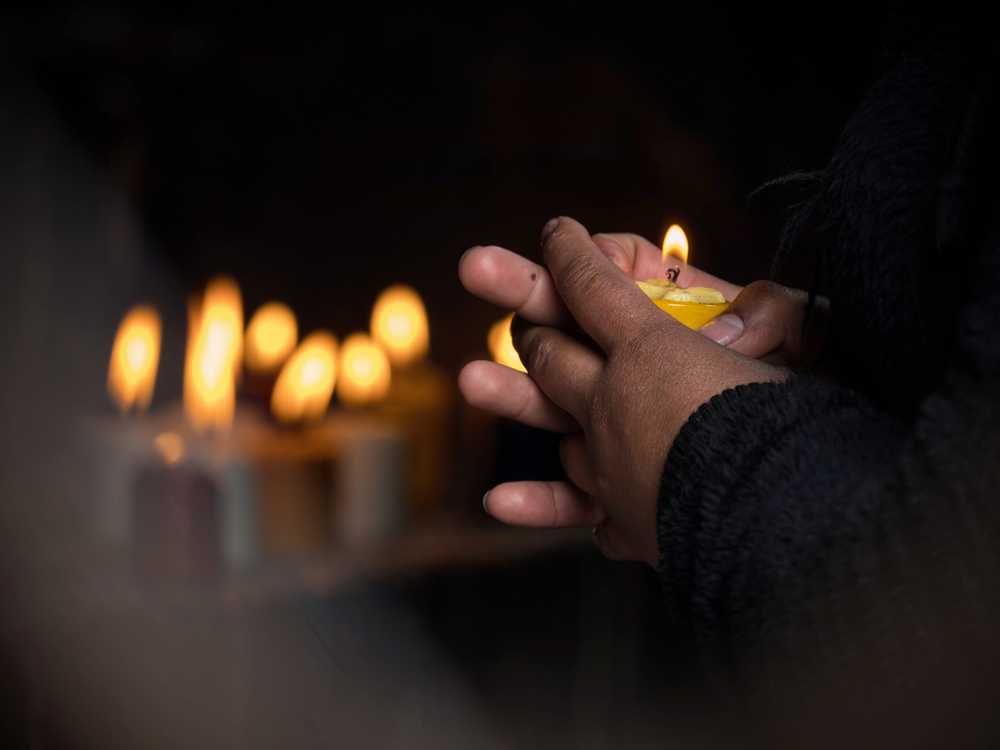Grief is a profound human experience, and when it manifests as communal grief, its repercussions ripple throughout society, affecting our emotional well-being and even our nervous systems. As grieving and trauma therapist Gina Moffa, LCSW, points out, sadness isn’t confined to the loss of loved ones; it can also arise from communal occurrences.
It is critical to prioritize self-care and empathy at times of collective loss. Moffa provides advice on how to navigate this difficult journey.
1. Put safety and self-care first
Collective mourning disrupts our feeling of safety, causing us to overlook our own needs. Moffa highlights the significance of providing a safe atmosphere and nurturing our physical and emotional well-being.
“It’s so important to create a safe environment for yourself and promote your own physical and emotional well-being,” she said. This involves developing a mindfulness practice, getting enough rest, staying hydrated, and reconnecting with nature.
During difficult circumstances, simplicity can be key. Moffa encourages us to “take it back to basics” by ensuring we meet our fundamental needs, like proper hydration and nutrition.
2. Incorporate structure into your life
During challenging times, structure and routine sometimes fall by the wayside, resulting in a sense of disarray. Moffa suggests reinstating structure into your life as much as possible. Setting aside specified periods for screen use and developing a consistent daily structure could be part of this. Moffa goes on to say that “it helps us restore a sense of normalcy to our lives and have a predictable framework when there’s chaos around us.”
3. Develop your empathy and self-compassion
When dealing with communal grief, empathy is essential. Moffa emphasizes the importance of normalizing empathy and enjoying our society’s interconnectivity.
At the same time, it is critical to exercise self-compassion. Moffa admits that it can be difficult, but adds, “Having self-compassion when we’re feeling helpless is a really important thing.” Recognize that controlling emotions can be more challenging during difficult circumstances, and that it is critical to be nice to yourself.
4. Understand your emotional limits
Collective trauma can be overwhelming, and it’s critical to understand your emotional boundaries. Moffa adds that when loss and trauma begin to have an impact on your well-being, it’s important to take a step back to protect your emotional resilience.
She says, “It’s understanding your emotional limit.” This does not imply ignoring the challenges but retaining the ability to take meaningful action when and where possible. It is critical to avoid emotional paralysis and to preserve a sense of hope.
5. Seek help
Reaching out for help in communal pain is a show of strength, not weakness. Moffa recommends obtaining help from support groups or mental health specialists when necessary. “It can provide us with understanding, a safe space to share our experiences and feelings, and connection with people who feel the same way,” she said.
Seeking assistance offers validation and prevents you from feeling lonely and alone. We are all members of a wider community, and asking for aid is an essential part of the healing process.
Collective grieving tells us of our humanity’s interconnectedness. During difficult times, it’s critical to give yourself permission to rest, heal, and concentrate on what you can control. Gina Moffa’s caring and informed advice provides a way ahead, emphasizing the importance of self-care, structure, empathy, identifying emotional boundaries, and seeking help. We can negotiate communal grief with strength and compassion if we work together, understanding that we are not alone on this road.











